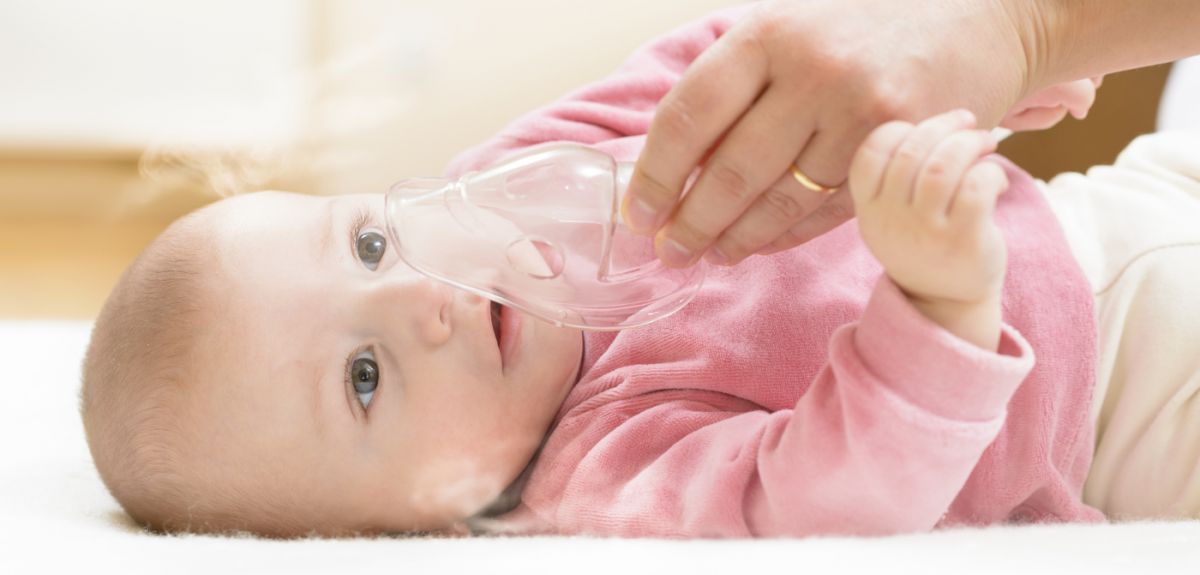
Source: Marius Pirvu/ Shutterstock
Vaccine for common childhood infection may finally be possible
Oxford University researchers have successfully completed the first human trial of a vaccine for a common virus that is particularly dangerous to infants. After fifty years of failed attempts around the world, a vaccine for respiratory syncytial virus (RSV), a major cause of respiratory disease, may now be within sight. The vaccine was conceived and initially tested in animals by a team of scientists at Italian biotechnology firm Okairos (now Reithera Srl), working with the UK’s Pirbright Institute. Their results are published in journal Science Translational Medicine.
RSV kills around 200,000 people worldwide each year. Both the elderly and infants are especially vulnerable to developing severe disease with RSV. Two-thirds of babies are infected with RSV before their first birthday and in winter the virus causes annual epidemics resulting in up to 15 out of every 100 admissions to children’s wards. In the world’s poorer areas, RSV is second only to malaria as a killer of children aged under 12 months.
Oxford University's Professor Andrew Pollard leads the Oxford Vaccine Group, which led the clinical trial of the vaccine. He said: 'RSV causes a lot of emergency admissions, especially in babies, and there is currently no way to prevent it. That means it is a priority for vaccine development.'
Dr Christopher Green, the lead physician for the trial, added: 'The results of this trial are a positive signal that prevention of RSV is achievable and follows years of RSV vaccine research at Oxford University and by vaccine manufacturers. The important results of this trial should be dedicated to the members of the public who were willing to be the first to receive the vaccines.'
The Oxford Vaccine Group, working with Reithera Srl, developed what is known as a 'prime-boost viral-vectored' RSV vaccine. The vaccine has two components: the first vaccine primes the immune system, while the second vaccine boosts it. Each component was created by modifying other viruses to carry proteins from RSV. These viral vectors are adapted so that the carrier virus (the vector) cannot replicate to cause disease, and the RSV element, while it triggers an immune response, cannot cause an RSV infection either.
The vectors were a chimpanzee adenovirus called PanAd3, never used in humans before, and a pox virus called modified vaccinia Ankara (MVA). Similar chimpanzee adenovirus vectors and MVA had already been tested as other viral vectored vaccines for other infectious diseases, including the new Ebola vaccines, and have been found to be safe.
This initial trial checked whether the vaccine was safe and immunogenic – whether it caused an immune response. Forty-two healthy adult volunteers received the two components with varying intervals between each element. While the boost component was given as an injection, half of the volunteers received the prime element as an injection and half as a nasal spray.
Professor Pollard said: 'Both components of the vaccine were found to be safe and to create an immune response.
'While I am delighted with these results, this was just a first trial. We need this vaccine for children and the elderly and that is where the efforts in vaccine development will now focus.'
The results of the trial are published in journal Science Translational Medicine on Wednesday 12 August 2015: Chimpanzee adenovirus and MVA-vectored respiratory syncytial virus vaccine is safe and immunogenic in adults.
RSV and respiratory disease: RSV is a major cause of bronchiolitis, where the smallest airways in the lungs (the bronchioles) become inflamed. The inflammation reduces the amount of air entering the lungs, making it more difficult to breathe. In the UK, most cases improve within two to three weeks without specific treatment. However, some children have severe symptoms and need treatment in hospital.
Bronchiolitis causes around 18% of winter-time admissions to paediatric wards. In around 80% of those admitted, RSV will be the cause of the disease.
RSV vaccine development history: Initial attempts to develop an RSV vaccine took place in the mid-1960s. A clinical trial of formalin-inactivated RSV vaccine (FI-RSV) actually made the disease worse. 80% of those who had the vaccine ended up in hospital while only around 5% of unvaccinated infants who caught RSV required a hospital admission. Two died. That tragic start led to an understandably cautious approach to future development.
 New study finds that ChatGPT amplifies global inequalities
New study finds that ChatGPT amplifies global inequalities
 Expert Comment: Chatbot-driven sexual abuse? The Grok case is just the tip of the iceberg
Expert Comment: Chatbot-driven sexual abuse? The Grok case is just the tip of the iceberg